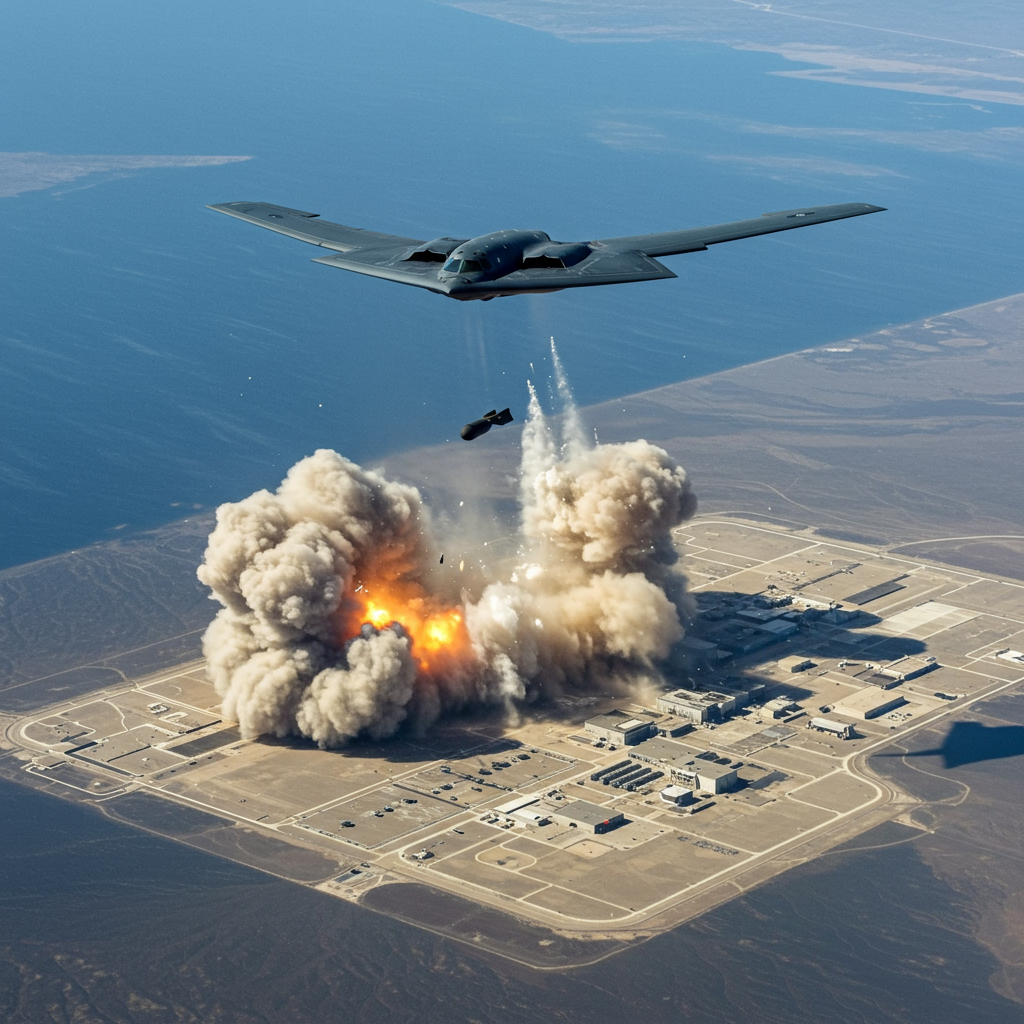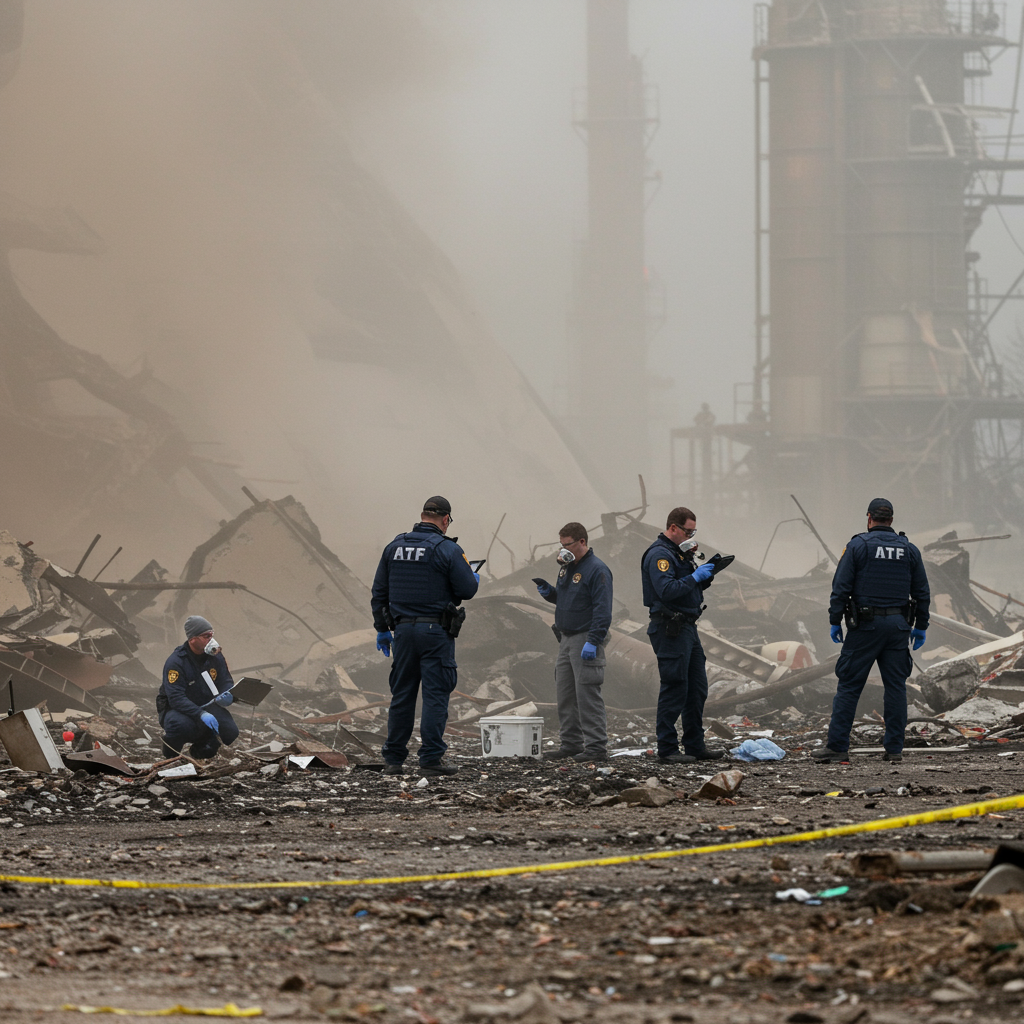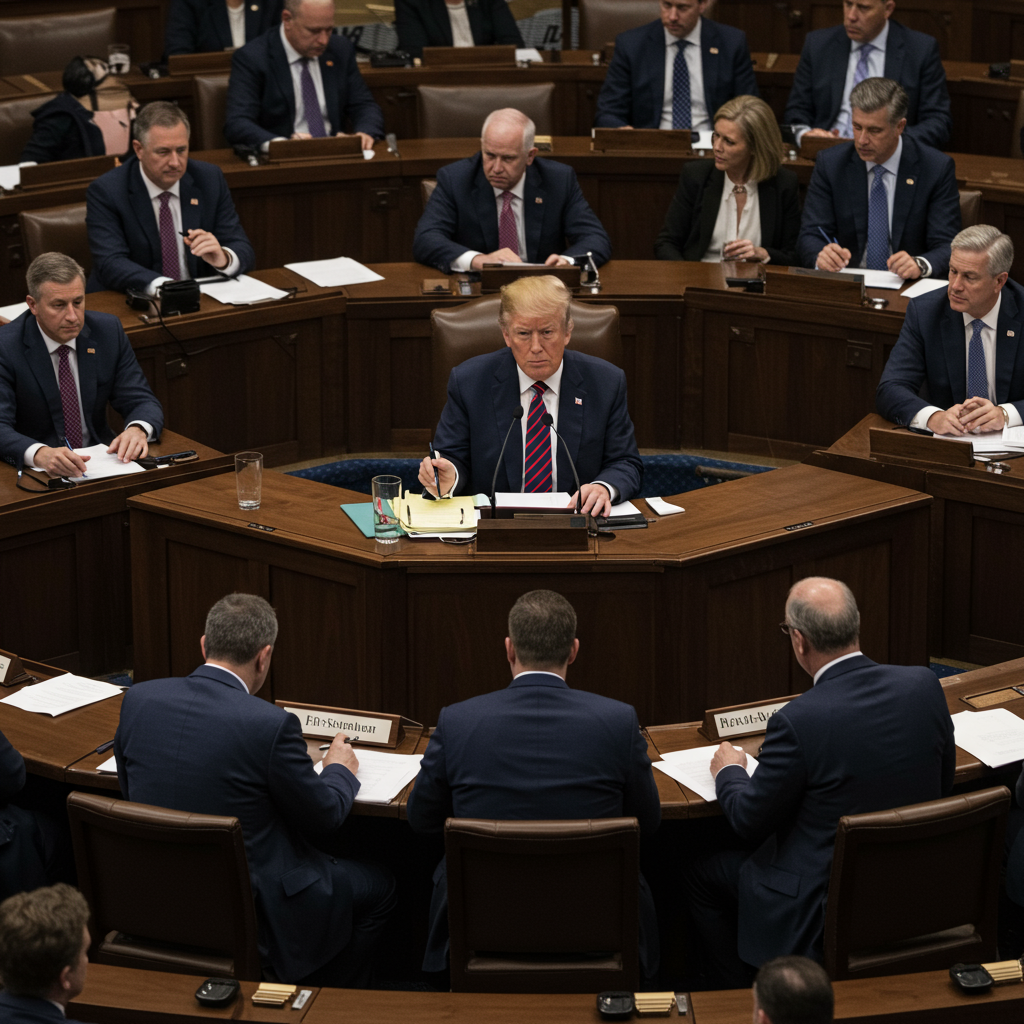Trump Denies Immediate Iran Strike Plans Amid Escalating Tensions, Decision Expected Soon
Amid rapidly escalating tensions between Israel and Iran, former President Donald Trump has publicly denied a report claiming he approved US military plans to attack Iran. While refuting the report, Trump confirmed a final decision on potential US involvement will be made within the next two weeks, explicitly linking the timeline to the possibility of future negotiations with Tehran.
The denial came in response to a report in the Wall Street Journal suggesting Trump had greenlit strike plans but was delaying execution to see if Iran would abandon its nuclear program. Posting on Truth Social, Trump stated the news outlet had “No Idea what my thoughts are concerning Iran!”
Later, speaking through his press secretary, Karoline Leavitt, Trump reiterated his position. Leavitt quoted him saying, “Based on the fact there’s a substantial chance of negotiations, that may or may not take place with Iran in the near future, I will make my decision whether or not to go within the next two weeks.” Previously, Trump had told reporters he had ideas but preferred to make the final decision “one second before it’s due,” adding about direct US involvement, “I may do it, I may not do it. The next week is going to be very big, maybe less than a week.”
Military Hurdles and the Fordow Facility
A key factor influencing the potential decision appears to be the military effectiveness of a strike, particularly against Iran’s deeply buried Fordow uranium enrichment site. Fordow is built into a mountain, making it a highly challenging target. According to reports citing US officials, Trump’s hesitation is tied to doubts about whether the US military’s most powerful conventional “bunker-buster” bomb, the GBU-57 (also known as the Massive Ordnance Penetrator or MOP), a 13.6-tonne weapon, would be capable of destroying the facility.
Sources indicate debate exists within Trump’s cabinet and the Pentagon regarding the GBU-57’s efficacy against Fordow. Some defense officials reportedly believe only a tactical nuclear weapon could penetrate deep enough to destroy the site. Successful destruction would likely require multiple GBU-57 bombs, a scenario never tested in combat and complex to execute.
Diplomacy Remains a Possibility
Despite the military posturing and ongoing conflict, the potential for diplomacy remains on the table, influencing Trump’s timeline. The White House views Iran as being in a “very weak and vulnerable position” and suggests the world is united in opposing Iran obtaining nuclear weapons, believing Tehran “can and should” make a deal. Reports indicate US envoy Steve Witkoff has engaged in phone conversations with Iranian Foreign Minister Abbas Araghchi since Israeli attacks on Iran began, suggesting diplomatic channels are open.
However, signals from Iran are mixed. While a senior Iranian diplomat reportedly expressed openness to negotiations with the US on a cease-fire and nuclear program, Iran’s mission to the UN issued a sharply worded statement declaring, “Iran does NOT negotiate under duress, shall NOT accept peace under duress, and certainly NOT with a has-been warmonger clinging to relevance.” Iran has also stated it will not negotiate while under bombardment.
Escalating Conflict and Regional Dynamics
Trump’s decision looms as the conflict between Israel and Iran intensifies. Recent events include significant Israeli strikes targeting Iranian nuclear facilities, such as the Khondab heavy-water reactor, the inactive Arak reactor, and sites near the Natanz uranium enrichment plant. Iran has retaliated with missile strikes, including a notable attack on the Soroka Medical Center, the largest hospital in southern Israel, although Iranian officials claimed the damage was from a strike near a military facility and not directly targeting the hospital itself. Civilian casualties have been reported on both sides.
The US has already increased its military presence in the region, deploying multiple warships, including destroyers and aircraft carrier strike groups like the USS Nimitz. The State Department has advised US citizens to consider leaving the area, and several countries are undertaking evacuations.
Within Israel, Prime Minister Benjamin Netanyahu has publicly thanked Trump as “a great friend of Israel” for his support. Meanwhile, reports suggest a cooling of internal debate within the Make America Great Again (MAGA) coalition regarding support for a strike on Iran. Figures like Tucker Carlson and Steve Bannon had previously expressed concerns about another Middle East engagement contradicting “America first” policies, though tensions appear to have eased, with Trump mentioning an apology call from Carlson.
The coming two weeks will be crucial in determining whether diplomacy prevails or if the US becomes directly involved in the widening conflict, a decision Trump states is now contingent on the prospects for negotiation.



